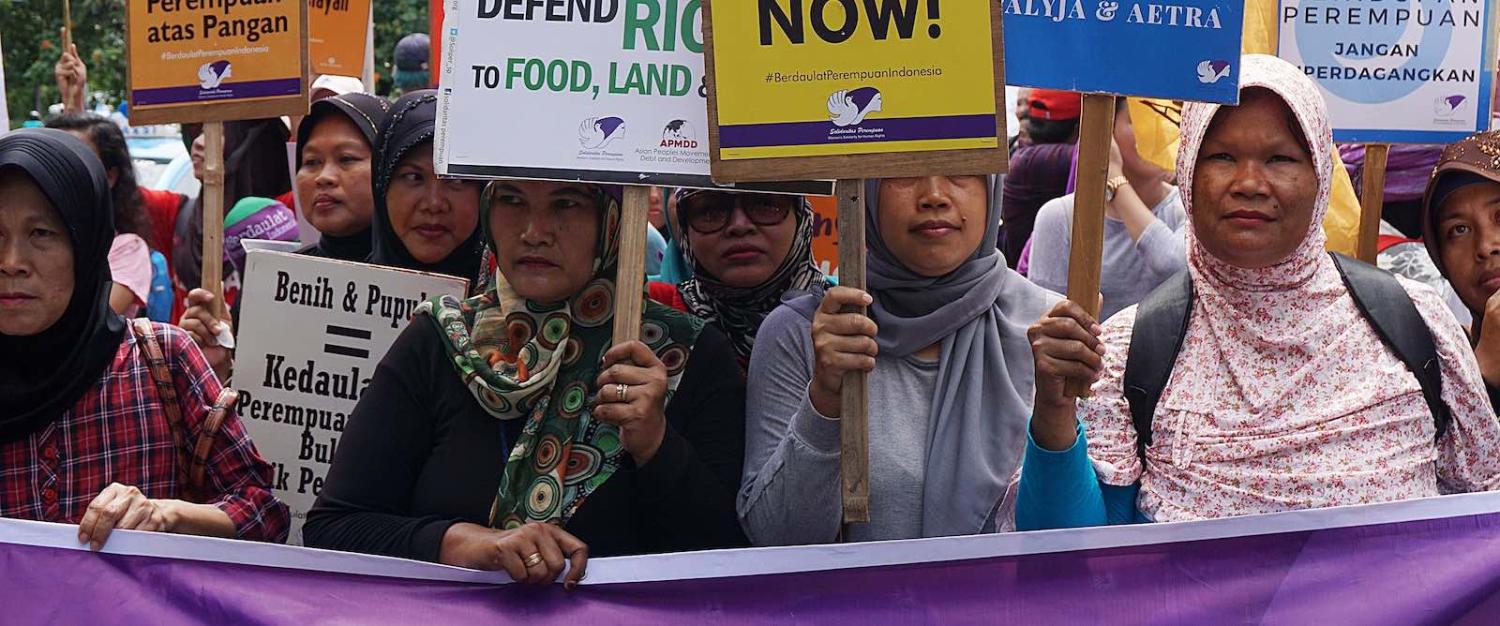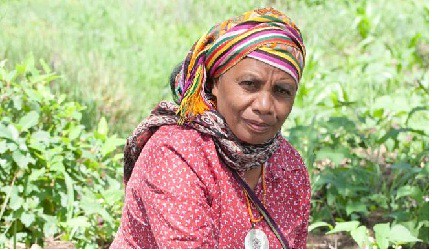At the very time Indonesian women are lauded for their campaign skills (look at Eva Bande and the Kendeng farmers, who just won the Yap Thiem Hien Award for organising protests to protect the environment), it remains a lamentable shame that the role women in Indonesian politics doesn’t show any significant progress.
It’s been that way ever since Suharto’s New Order regime took over the Sukarno’s throne, of politics dominated by men.
The low number of women participating in parliament also influences the priority placed on regulations that would favour women in society.
What makes this such a sticking point? Start with the present, then look back at history.
According to the data from National Development Planning Board (Bappenas) and the United Nations Population Fund, the number of women in Indonesia stands at 132 million, from total population 265 million, or roughly 50%, as expected. Yet since the fall of Suharto until the latest election in 2014, the number of women that have become the lawmakers have never reached even 30%.
Regulations have been issued with the hope of boosting the number of women in the Dewan Perwakilan Rakyat (DPR), as Indonesia’s House of Representatives is known. In 2002, for instance, Law Number 31 concerning Political Parties, and, in 2003, Law Number 12 concerning General Elections, both sought to increase the proportion of women's representation in the parliament.
Such regulations have helped, but in an uneven fashion.
In the 1999 election, women occupied 44 seats in the DPR, or a mere 8.8% of the total. This proportion increased to 65 seats in the 2004 election, an increase to 11.8% overall. Women’s representation was highest after the 2009 elections, with a proportion of 17.9%. Unfortunately, between 2014–2019, growth in the number of women as members has stalled – and even gone backwards as proportion of the total, to 97 out of 560, or 17.3%.
The lack of representation has wider consequences. The low number of women participating in parliament also influences the priority placed on regulations that would favour women in society. Unfortunately, women activists are still struggling to push the DPR to ratify a sexual violence bill, a crucial fight in the war to unwind misogynist elements of Indonesian law.
But even this bill has been challenged by Indonesian women themselves aligned to ultra-conservative groups. Against a backdrop of rising of fundamentalism, populism, and militarism in Indonesia, clearly more needs be done.
But there is also history to overcome.
In the years leading up to independence, women’s organisations in Indonesia flourished after the launch of the Indonesian Women's Congress (Kowani) in 1945.
During the Sukarno era, 1945–1966, women made up names of some of the leading politicians in political parties. Women such as Kartini Kartaradjasa and Supeni were well-known in the Indonesian National Party (PNI). Walandauw was a leading figure in the Indonesian Christian Party (Parkindo), Mahmuda Mawardi and Wachid Hasyim prominent in the Nadhlatul Ulama Party, and Salawati Daud was a famous female figure from the Indonesian Communist Party (PKI).
However, all these women were forced to disappear when the Sukarno fell to a coup by General Suharto.
Without the work of the Indonesian Institute of Sciences (LIPI), which has properly documented the data, Indonesia’s millennials would not understand the fate of the generation that came before.
Suharto sought to replace women’s political activism with such “women’s organisations” as the Dharma Wanita, focused on domestication and femininity. Women were displaced from the political stage or public space and shunted into the “kitchen” for decades.
However, the spirit of the women’s movement survived among the Indonesian women, in both those living under the repression of Suharto (particularly the relatively privileged in Java) and indigenous women.
In the 1980s, women organisations such as Kalyanamitra Foundation and Rifka Annisa arose in the country, offering a little hope.
And slowly, so do the indigenous women across Indonesia. Some names deserve careful attention: Mama Yosepha Alomang (West Papua), Sukinah and Gunarti’s (Kendeng farmers), and Aleta Baun. Many were not touched by the “modernity” of new order – most of them didn’t have an obligation to attend the Dharma Wanita. Indigenous women in West Papua for example, were busy gardening, growing up in indigenous families and learning the grace of equality, instead of the supposed luxury of being “modern” and “well educated”.
Following this lead, other Indonesian women are working hard to gradually change the culture. It started with a fight against cat-calling in the street, then lead to something bigger, such as resisting the biggest gold mining company in the world.
Is there hope for women in politics, especially as representatives in parliament? A question mark still remains. One party raises the issue of women, Indonesia Solidarity Party (PSI), yet must yet observe a commitment on the struggle of the indigenous women. Meanwhile, National Awakening Party (PKB), an Islam-based political party, is promoting Aleta Baun, who happens to be a non-Muslim, but a commitment towards women’s issues in general is still not clear.
For the rest, women are just seen as cheer leaders. Look how both presidential candidates sometimes use the tagline “the power of emak-emak” (emak is mother or housewife), yet glorify the ideal “strongman” to lead the country. The “emak-emak” is reduced to only issues of guiding men, daily goods, and childcare. They still put women in the “kitchen”.
The good news is that politics is not limited. There is no measurement or quota that can be reached guarantee women’s issue will be prioritised. Because even when a woman becomes a lawmaker, does it mean she has a perspective on women’s issues?
For now, the women’s movement has to be satisfied to focus on influencing the public. In the future, perhaps Indonesian women will not only occupy more seats in parliament but also the strategic positions, such as in the ministry of education, environment or defence. Or perhaps a woman will chair the human rights commission, a labour union, or even be a leading ulema.
There is always a chance for Indonesia to create a better atmosphere for women across the nation.


